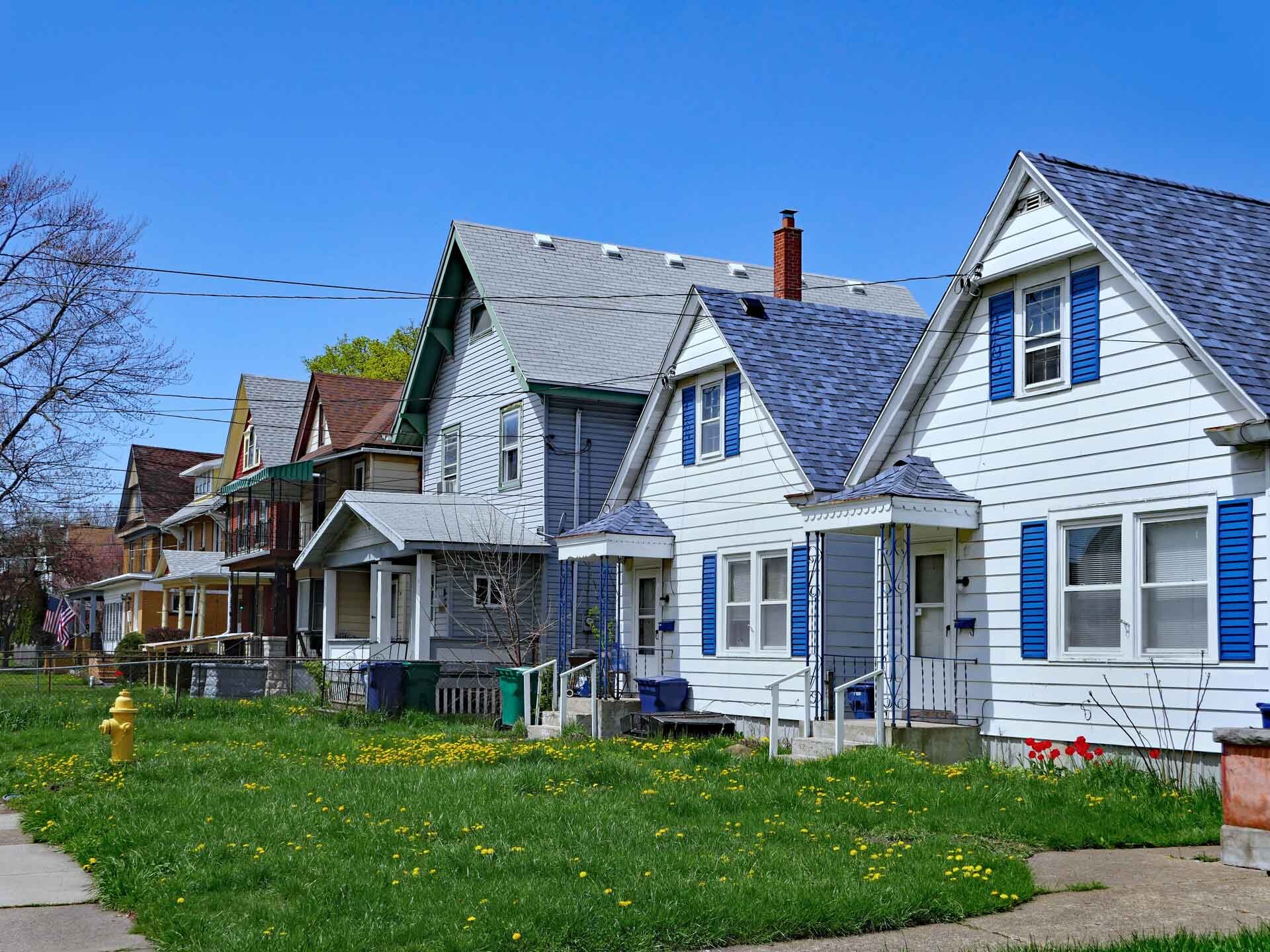Foreclosure occurs when a homeowner is unable to make their mortgage payments on time and has no way to catch up on the missed payments. Because a mortgage is a legal agreement between you and your lender, once you’ve defaulted on the loan, the lender can initiate legal action to reclaim the property. In most cases, this means auctioning off the home to recover the unpaid balance. Unfortunately, this leaves the homeowner without a place to live and a significant blow to their credit, often making it difficult to secure housing or credit in the future.
Receiving a foreclosure notice is devastating—but far more common than many realize. According to a recent U.S. Census Bureau Household Pulse Survey (July 27 to August 8, 2022), nearly 1 million Americans expressed concern about losing their homes to foreclosure. Financial hardship can strike suddenly, and foreclosure can result from many situations outside a homeowner’s control, including:
- Job loss or significant reduction in income
- Divorce, separation, or death of a spouse
- Overwhelming debt from medical expenses or credit cards
- Relocation or moving without the ability to sell the property
- Damage or loss of income due to a natural disaster (flood, fire, hurricane, etc.)
Each of these circumstances can quickly snowball, making it impossible for homeowners to keep up with their mortgage payments.
Stillwater Properties Can Help
Stillwater Properties is a local home-buying company based in WI that specializes in helping homeowners facing difficult situations, including foreclosure. We understand the stress and uncertainty that comes with defaulting on your mortgage, and that’s why we offer a simple, fast, and transparent solution.
We buy houses as-is, for cash, and without involving real estate agents, commissions, or bank financing. You won’t need to fix a thing or wait for loan approvals—we can close in as little as 7 days, putting money in your hands quickly so you can move forward with peace of mind.
What is Foreclosure?
Let’s say you or your spouse recently lost a job. The bills continue to pile up, and without adequate income, your mortgage payment slips further and further behind. Even if you’re lucky enough to find a new job quickly, the backlog of missed payments, late fees, and penalties may be too overwhelming to recover from.
When this happens, and no solution is reached with your lender, the bank initiates foreclosure. This process allows them to seize and sell the property to recover the loan balance. While it’s a legal remedy for lenders, for homeowners, it can be a personal and financial nightmare.
Understanding how foreclosure works can help you prepare and potentially avoid the most damaging outcomes.
How Long Do You Have to Get Out of Your House After Foreclosure?
The foreclosure process doesn’t happen overnight. In most states, it follows a set of steps: missed payments, public notice, legal filing (judicial or non-judicial), auction, and finally, eviction.
Here’s what you can generally expect:
- Initial Delinquency: After 30 days of missed payments, you’ll start receiving late notices and calls from your lender.
- Notice of Default (NOD): Typically issued after 90 days, this legal notice informs you that the foreclosure process has formally begun.
- Foreclosure Proceedings: Depending on the laws in WI, your foreclosure may follow either a judicial (court-involved) or non-judicial process. Timelines vary but usually range from 120 days to 9 months or longer.
- Auction/Sale: If the issue isn’t resolved, your home will be scheduled for a public auction. At this point, it’s legally sold to the highest bidder or becomes a bank-owned property (REO).
- Eviction: After the auction, if you’re still occupying the property, the new owner or the bank will initiate an eviction process. In some cases, you may be offered cash-for-keys to leave voluntarily and quickly.
It’s crucial to understand that you still have options during this entire period, including loan modification, repayment plans, selling the home, or negotiating with your lender.
The Different Types of Foreclosure
There are two different types of foreclosure you may experience: nonjudicial foreclosure or judicial foreclosure.
What Is Non-Judicial Foreclosure?
A non-judicial foreclosure is the fastest and cheapest way for a lender to foreclose on your WI property. It does not require taking you, the homeowner, to court and can be completed according to state statutes. In the case of non-judicial foreclosure, your lender repossesses your home to sell it and recover whatever debt is owed using what’s called a “power-of-sale” clause in the deed of trust. Not every state allows for this option but, if yours does, the lender will generally choose it to avoid any court costs.
This process typically begins when the borrower defaults on the loan, and the lender files a Notice of Default (NOD), followed by a Notice of Sale, giving public notice that the property will be sold at auction. One of the main advantages for the lender is speed—non-judicial foreclosures can be finalized in as little as 90 to 120 days, depending on the specific requirements in WI.
For homeowners, this often means less time to respond or explore alternatives like loan modification or selling the property. Because there is no court oversight, the process moves quickly, and delays are limited. However, this also means fewer legal protections and a shorter window to stop the foreclosure once the process has begun.
In WI, lenders must still follow strict legal guidelines, including proper notice periods and publication requirements. If these steps are not followed precisely, the foreclosure could be challenged—but such challenges can be difficult and time-sensitive.
If you’re facing a non-judicial foreclosure in WI, it’s critical to act quickly. Options such as negotiating with your lender, pursuing a short sale, or working with a local homebuyer like Stillwater Properties can help you avoid losing your home through auction. Being proactive during the early stages of default can provide you with better control over your financial future.
What Is Judicial Foreclosure?
In states that require judicial foreclosure, your lender must file a lawsuit asking the court to issue an order to allow for the sale of the home. This legal action formally initiates the foreclosure process. The lender must provide you with written notice—often called a summons and complaint—explaining the nature of the suit and your legal obligation as a borrower.
Whether you agree with the foreclosure or not, it is absolutely essential that you respond to this notice within the specified timeframe, usually 20 to 30 days depending on the state. Failing to respond means the court may issue a default judgment in favor of the lender, automatically granting them the legal authority to proceed with the foreclosure sale of your property.
Once the court approves the foreclosure and your house is sold—typically at a public auction—you could still be on the hook financially. That’s because if the property sells for less than the remaining loan balance, you’re still responsible for paying the difference. This amount is called a deficiency balance, and lenders can pursue a deficiency judgment to collect the remainder from you, even after the home is no longer yours.
Why Judicial Foreclosure Can Be Riskier for Homeowners
Unlike traditional real estate transactions, foreclosure auctions rarely result in full market value sales. Investors and cash buyers often seek steep discounts, and there’s little room for negotiation. That means even if your home is in good condition and has significant equity, it may sell for far below its true worth. You could end up owing tens—or even hundreds—of thousands of dollars on a loan for a house you’ve already lost.
This added financial burden, combined with the stress of legal proceedings, makes judicial foreclosure one of the most difficult experiences a homeowner can face. It’s also a costly and time-consuming process for lenders, often requiring months of litigation, court hearings, and legal fees. This is a major reason why many mortgage lenders prefer non-judicial foreclosure when available—it’s faster, cheaper, and less cumbersome from a legal standpoint.
If you’re facing a judicial foreclosure, don’t wait to take action. Consulting with a foreclosure attorney or a local real estate expert—like Stillwater Properties in WI—can help you understand your rights, explore alternatives like a short sale or deed-in-lieu, and potentially stop the foreclosure process altogether.
Would you like me to add an internal link to a “Deficiency Judgment Explained” blog post or expand this with a real-world example? Just let me know!
Get an offer today, sell in a matter of days.
How to Sell Your House Before Foreclosure in WI
Let’s break down a few ways you can sell your house, depending on your time frame and situation:

Hire A Real Estate Agent
The first step most Americans think of when selling a house or property is to reach out to a local real estate agent. But there are pros and cons to this option when you are in a difficult situation such as foreclosure. Sure, a good real estate agent can list your property on the MLS and help you get it ready for open houses and daily showings, but they do all of this work so that at the end of the closing process a large chunk of your money from the sale of your house goes to them in the form of the agent’s commission. When you’re already suffering from a mountain of debt and need every penny to pay back your lender, a commission of 3% to 6% of your final sale price may be too hefty an amount to give up.
Plus, there’s the additional fear of not knowing when your house will actually close. Realtors may promise a lot, but at the end of the day you’ll still need to find the right buyer and wait 30+ days for a traditional close. For some homeowners who are facing auction and eviction, even waiting one month might be too long.

Short Sale
If you owe more on your house than it’s worth, your realtor may require what is called a short sale. A short sale is necessary when you owe more on your house than the property is currently worth. For example: if you owe $200,000 on your house but in the current market it’s only worth $150,000, you must deal with a short sale. Though it may seem like a good option, it won’t be fast or easy.
To start off, you’ll first need to get your lender’s approval. To qualify for a short sale, you must prove financial hardship using documentation such as W-2s, medical bills, etc. For a situation such as loss of income, the lender will require that you prove that the loss of income is long-term and unlikely to turn around in your favor. If the lender approves the short sale, you will need to find a real estate agent and attorney that specialize in short sales, and they will still charge you the same amount as they would if you were selling your house with a traditional home sale.
If your foreclosure hasn’t dragged on for too long and you’ve maintained contact with your lender, it’s likely that they will approve the short sale. This allows them to avoid the time and expense of trying to foreclose on your property, while still recouping some of the loss from the missed mortgage payments. But for the regular American homeowner, the short sale will follow them for the next 5 to 7 years.
You may have sold the house and been able to pay off some of your debt, but the short sale can damage your credit the same as if you had declared bankruptcy. The credit unions include the delinquency on your mortgage(s) to your lenders and the short sale on their records, making it nearly impossible for previous homeowners to get a credit card, buy a car, or move into a new house or property for the same amount of time as a bankruptcy.

Sell Your House AS-IS to A Cash Buyer
If you’re under a strict time restraint to sell your house before a foreclosure progresses to auction and eviction, you do have options! You can try to sell your property with a real estate agent, work with your lender to complete a short sale, or – best of all – turn to a trusted and reliable cash investor to help you with your situation.
Some of the benefits of selling to a direct cash investor include:
- A quick and pain-free closing process.
- Avoid paying any commissions or fees.
- You won’t have to worry about marketing your house and waiting for a buyer.
- No need to clean-up or complete any repairs!
When you sell your home as-is to a direct cash buyer, you not only can avoid losing your home to an auction, but you also may be able to sell the property for enough money to get out of financial debt. Moving on with your life without the burden of a monthly mortgage payment and debt hanging over your head is one of the best gifts you can give yourself!
Can You Stop Foreclosure Once it Starts?
Pay Off Your Loan & Fees
You’ve found yourself in a difficult situation. Your debt is adding up while your finances remain the same. It’s time to get serious and look at ways to pay down your debt quickly. Do you have any items you can liquidate? Maybe you have friends or family that can gift you money or provide you with a loan until you get back on track. If you are serious about paying down your debt and stopping foreclosure, you may need a financial professional to help you restructure your budget. Use one of these solutions or combine them all to help climb that avalanche of debt and get back to living a life free of stress.
Declare Bankruptcy
As a last resort, bankruptcy may help you stop the foreclosure of your home but it comes with a high cost. The bankruptcy process is complex and will require a lawyer that specializes in bankruptcy law. If the court approves your petition, you will be entered into a government-approved credit counseling program and the bankruptcy will be reported on your credit report for 7 years. A bankruptcy affects all areas of your life, including when you try to purchase a car, apply for a credit card or bank account, and can disqualify you from future rentals.
The Homeowner Affordability and Stability Plan (HASP)
If your debt is higher than your income, you may be eligible for the Homeowner Affordability & Stability Plan (HASP). HASP is a loan modification program targeted at borrowers who are at risk of foreclosure due to insufficient income. This government program was designed to help homeowners in the United States restructure their monthly payments to fit a limited budget. Apply for the program here to see if you qualify.
Sell Your House Fast to a Cash Buyer
Are you ready to sell your house but don’t have the time to wait 30+ days for a traditional close? Does a short sale seem like a fast way to ruin your credit? Prefer to pay off all your debt at once and get the bank off your back fast? A direct home buyer and cash investor might be exactly the solution you’ve been searching for! When you work with a trusted and reliable investor with a great reputation in your area, you’ll find a helpful company with cash on hand that is ready to purchase your home from your as-is. With a cash buyer, you can skip the lengthy process of foreclosure, eviction, and auction within a matter of days, and save your credit as well!
You may not get full market value for your house or property when you sell to a trusted cash investor, but the timeliness of a fast closing, and the lack of fees, required inspections, and commissions often balance this out at close. Best of all, because an investor can close fast, you can often close before the bank is able to auction off your property! This means you can sell the property for the amount that benefits you versus the pennies to the dollar price the bank will often try to sell your house for just to get it off the books.
We Buy Houses in Foreclosure & Pre-foreclosure–
Get Your Offer Today!
Does the idea of finally walking away from a property without the storm cloud of foreclosure hanging over your head? Contact a real professional at Stillwater Properties to find out more and get a fair cash offer for your property today.

